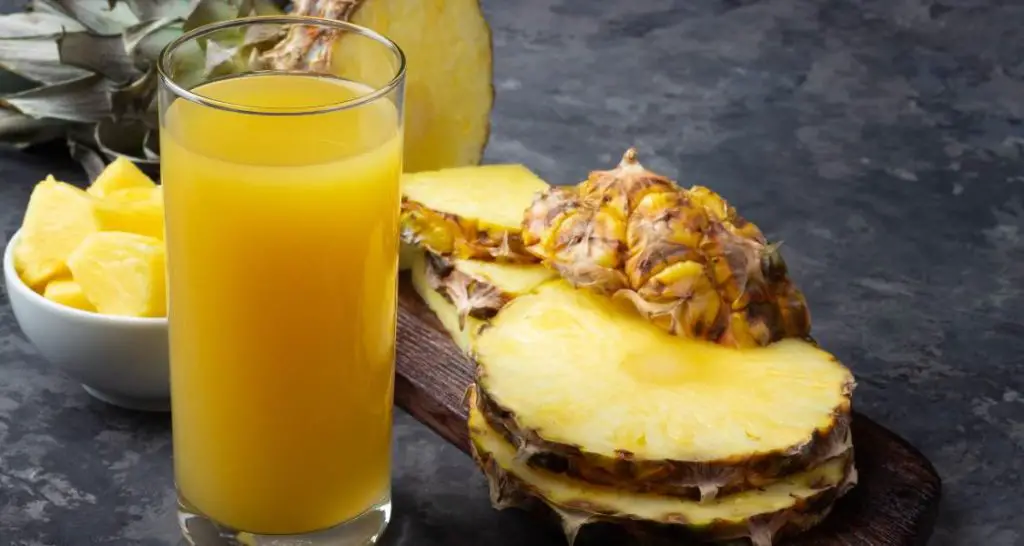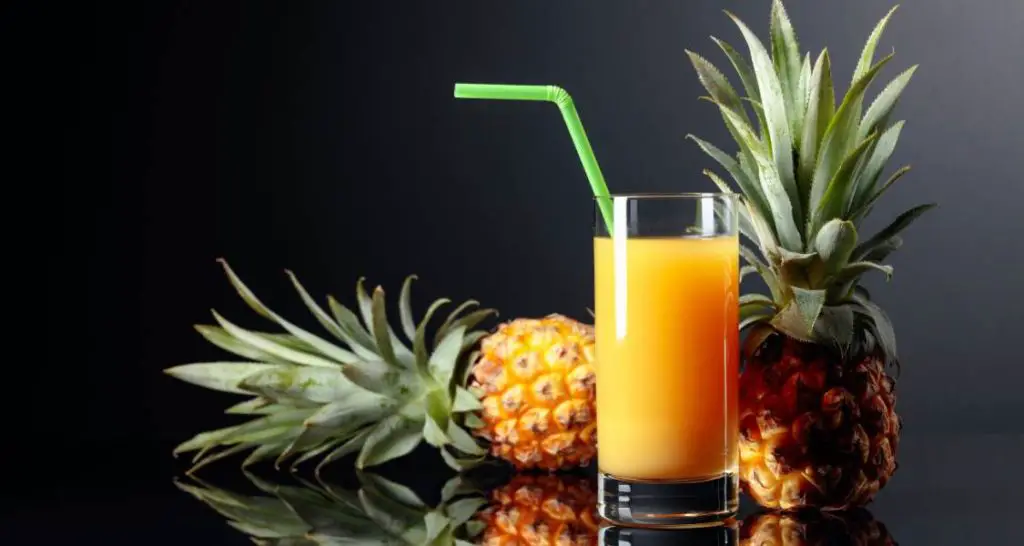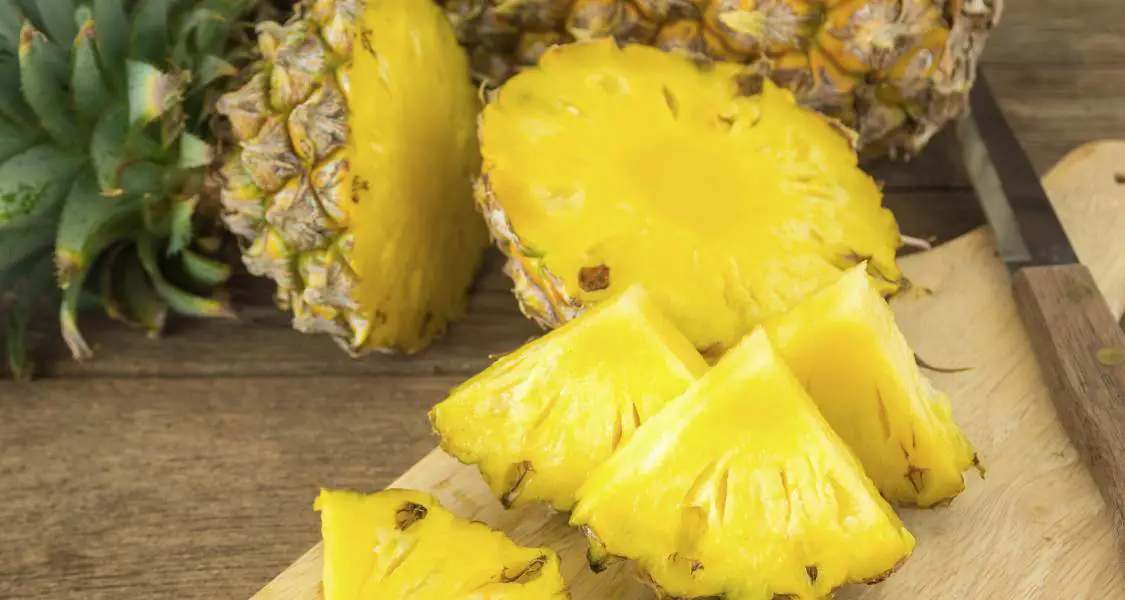The luscious, tropical taste of pineapple – who doesn’t love it? If you have histamine intolerance, you know how important it is to watch what you eat. Eating too many foods that increase your body’s histamine burden can trigger histamine intolerance symptoms ranging from stuffy nose and headache to digestive issues.
Is pineapple low histamine? It is but there are some caveats that you should know. Not all forms of pineapple are low histamine. Let’s dig a little deeper.
Histamine intolerance is caused by the body’s inability to break down histamine. Two types of cells produce histamine – mast cells and basophils. (2) Plus, you can get histamine from the foods you eat. To learn more about the causes of histamine intolerance, read this article.
Diet matters with histamine intolerance. Eating foods that are high in histamine can increase your body’s histamine level and trigger symptoms, such as headaches, congestion, hives, digestive issues and other of the many manifestations of histamine intolerance.
Additionally, certain foods can promote the liberation of histamine from mast cells (histamine producing cells). These are called histamine liberators.
Is Pineapple Low Histamine?
While fruit, like pineapple, are a healthy food for most people, certain fruits are off the table if you have histamine intolerance. For example, citrus fruits are well known for triggering histamine intolerance symptoms. But should you avoid pineapple if you have histamine intolerance?
If you love biting into fresh pineapple, there’s good news. Pineapple is not a significant source of histamine in its unprocessed state.
Pineapple has other health benefits as well. Along with being a great source of vitamins, minerals, and antioxidants, pineapple is also high in dietary fiber. Pineapple contains healthy nutrients and phytochemicals associated with antioxidant and anti-inflammatory capacities.

Pineapple Has Anti-Inflammatory Activity That May Be Beneficial for Histamine Intolerance
Some studies find that pineapple may lower elevated cholesterol. Preliminary evidence find that regular consumption of pineapple could blood levels of cholesterol, triglycerides, and low-density lipoprotein (LDL). (6)
Since pineapple contains vitamin C (an antioxidant vitamin) and phytochemicals with anti-inflammatory activity, it could be a beneficial addition to a low-histamine diet. Reducing inflammation should further reduce your body’s histamine burden, or at least no increase it.
Another component in pineapple called bromelain has potential anti-inflammatory activity and may help with digestion. (7)
According to some lab studies, bromelain may be beneficial for treating the symptoms of rheumatoid arthritis, for relief of swelling, pain and bruising after surgery, and for reducing muscle soreness after workouts due to its anti-inflammatory properties. It’s an area that needs more research. (8)
Is Pineapple a Histamine Liberator?
Some sources say that pineapple is a histamine liberator, meaning consuming pineapple boosts the release of histamine from mast cells. I could find no documented evidence of this, but due to this concern, approach pineapple with restraint.
Try eating small amounts and see how you respond to it. The anti-inflammatory benefits of pineapple may compensate for some of the histamine-liberating effects of pineapple, if it actually is a histamine liberator.
From my own experience talking to patients about their experiences with histamine intolerance, most don’t experience worsening of their symptoms when they consume pineapple in moderation.
Does Pineapple Contain Other Biogenic Amines?
Histamine is one type of biogenic amine (3) but there are others that can cause problems for people who are sensitive to them. These include putrescine, tyramine, and tryptamine, also in certain foods. There’s no evidence that fresh pineapple contains significant quantities of these biogenic amines either. So, it’s a food that can be part of a low-histamine diet.

The Same May Not Be True of Pineapple Juice
Whole, fresh pineapple gets a green light, but the same can’t be said for pineapple juice. A study found that some samples of pineapple juice contain histamine. Why? They concluded that histamine accumulated during storage or processing, possibly because of non-hygienic conditions. (1) Here’s a quote from the study:
“The presence of histamine in grapefruit, orange, and pineapple juices is due to a lack of hygienic quality during processing or storage, since this amine is not found in the original fresh fruit.” (4,9))
Another study (4) found significant amounts of biogenic amines in commercial fruit juices including pineapple juice, grapefruit juice, apple juice, and orange juice. You would expect grapefruit and orange juice to be high in histamine and other biogenic amines since they’re in the citrus fruit family. But processing of fruit to make fruit juice may be an issue for commercial fruit juices.
Bacterial contamination is a major cause of increases in histamine production in food. It occurs when histamine-producing bacteria contaminate food and produce histamine as a by-product of their growth and metabolism. (5) That’s why it’s so important to eat fresh food and avoid fermented food and leftovers. So, toss those leftovers!
Can I Eat Pineapple on a Low-Histamine Diet?
Is pineapple low histamine? You may be able to enjoy pineapple in moderation as part of a low-histamine diet, but consune it in small amounts initially, as there’s some thought that pineapple may be a histamine liberator.
Continue keeping a food diary and note how your body responds to pineapple. But while pineapple itself is low histamine, commercial pineapple juice is not.
So, if you’re looking to enjoy pineapple, the whole fruit is the way to go. Eating the whole fruit is healthier than drinking juice since it retains the fiber, a dietary component most people need more of! Fiber helps prevent blood sugar spikes by slowing the absorption of carbohydrates.
But what if you like the taste of pineapple in liquid form, add fresh pineapple to a low-histamine smoothie for a splash of tropical sweetness. With this approach, you still benefit from the fiber and enjoy the taste of fresh pineapple.
References:
- Sánchez-Pérez S, Comas-Basté O, Rabell-González J, Veciana-Nogués M, Latorre-Moratalla M, Vidal-Carou M. Biogenic Amines in Plant-Origin Foods: Are They Frequently Underestimated in Low-Histamine Diets? Foods. 2018;7(12):205. doi:10.3390/foods7120205.
- Borriello F, Iannone R, Marone G. Histamine Release from Mast Cells and Basophils. Handb Exp Pharmacol. 2017;241:121-139. doi: 10.1007/164_2017_18. PMID: 28332048.
- Wójcik W, Łukasiewicz M, Puppel K. Biogenic amines: formation, action and toxicity – a review. J Sci Food Agric. 2021 May;101(7):2634-2640. doi: 10.1002/jsfa.10928. Epub 2020 Dec 12. PMID: 33159318. https://pubmed.ncbi.nlm.nih.gov/33159318/
- Preti, R., Bernacchia, R. & Vinci, G. Chemometric evaluation of biogenic amines in commercial fruit juices. Eur Food Res Technol 242, 2031–2039 (2016). https://doi.org/10.1007/s00217-016-2701-5
- “Bacterial Contamination in Food Production – ScienceDirect.” 01 Jan. 2016, https://www.sciencedirect.com/science/article/pii/B9780128007235000036.
- Seenak P, Kumphune S, Malakul W, Chotima R, Nernpermpisooth N. Pineapple consumption reduced cardiac oxidative stress and inflammation in high cholesterol diet-fed rats. Nutr Metab (Lond). 2021 Apr 7;18(1):36. doi: 10.1186/s12986-021-00566-z. PMID: 33827626; PMCID: PMC8028712.
- Insuan O, Janchai P, Thongchuai B, Chaiwongsa R, Khamchun S, Saoin S, Insuan W, Pothacharoen P, Apiwatanapiwat W, Boondaeng A, Vaithanomsat P. Anti-Inflammatory Effect of Pineapple Rhizome Bromelain through Downregulation of the NF-κB- and MAPKs-Signaling Pathways in Lipopolysaccharide (LPS)-Stimulated RAW264.7 Cells. Curr Issues Mol Biol. 2021 May 7;43(1):93-106. doi: 10.3390/cimb43010008. PMID: 34067064; PMCID: PMC8929103. https://www.ncbi.nlm.nih.gov/pmc/articles/PMC8929103/
- Bromelain Information | Mount Sinai – New York. Mount Sinai Health System. Published 2013. Accessed January 9, 2023. https://www.mountsinai.org/health-library/supplement/bromelain
- Sánchez-Pérez S, Comas-Basté O, Rabell-González J, Veciana-Nogués MT, Latorre-Moratalla ML, Vidal-Carou MC. Biogenic Amines in Plant-Origin Foods: Are They Frequently Underestimated in Low-Histamine Diets? Foods. 2018 Dec 14;7(12):205. doi: 10.3390/foods7120205. PMID: 30558197; PMCID: PMC6306728.

